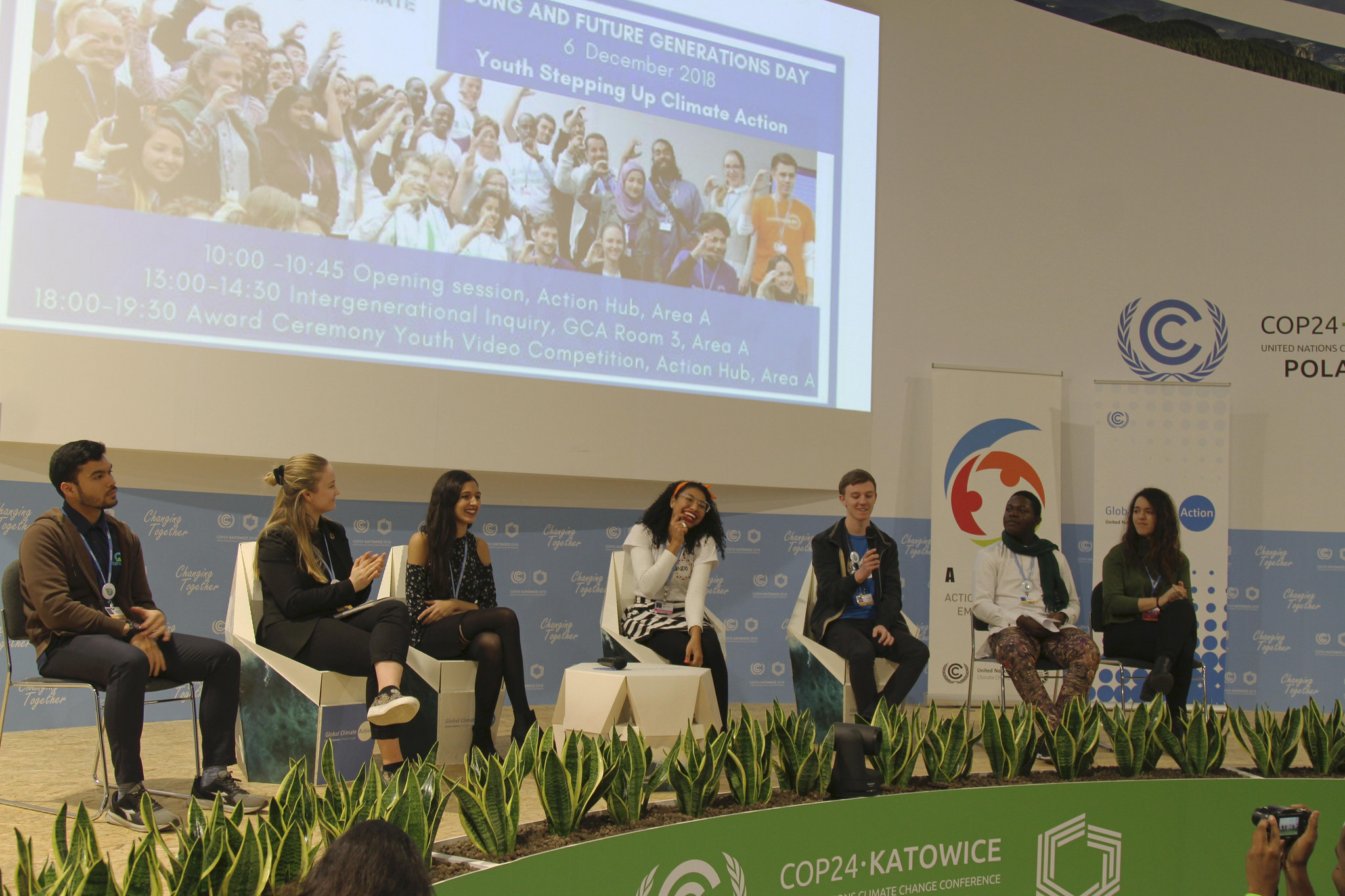Young and Future Generations Day was celebrated at COP24 today, December 6th. This intergenerational focus offers an opportunity for leaders, negotiators and other stakeholders to reflect on the world that will be inherited by those generations yet to be born. The Mary Robinson Foundation – Climate Justice has been working with governments and civil society actors to advance the consideration of intergenerational equity in decision making around climate change and sustainable development.
Balancing the Needs of Present and Future Generations
Intergenerational equity, understood as fairness between generations, is a universal concept across the world and across cultures. It is a principle that informs constitutions, international treaties, economies, religious beliefs, traditions and customs. Today, there is an increasing awareness of the moral imperative to ensure that future generations of humanity can live full and healthy lives, underpinned by the dignity and rights promised by the Universal Declaration of Human Rights. This requires meeting the needs of present generations without compromising the ability of future generations to meet theirs.
Success in eradicating poverty, reducing inequality and turning the tide on climate change is essential to ensuring intergenerational equity and advancing climate justice. In agreeing the 2030 Agenda for Sustainable Development and the Paris Agreement on climate change in 2015, the global community set out a blueprint to ensure that the current generation can realise a more secure and prosperous world. However, in implementing these two global agendas, due consideration must be given to ensuring the long term sustainability of the actions undertaken.
A recent report produced for the Club of Rome by scientists at the Stockholm Resilience Centre and the Norwegian Business School illustrates that there are a variety of pathways by which the Sustainable Development Goals and the Paris Agreement targets can be achieved, but not all of them ensure long term sustainability.
The report says “Transformative change is needed to attain the SDGs because, on the current path, the world will only achieve 10 of the 17 Sustainable Development Goals by 2030. This happens at the expense of pushing 8 of the 9 planetary boundaries out of their safe zones – with the situation worsening to 2050 and beyond.”
Giving voice to future generations
Applying an intergenerational lens to decision making requires that all people realise their right to development today while ensuring that future generations are left with the means to meet their own needs. For the past two years the Foundation has been supporting a Group of Friends of Future Generations, a group of Permanent Missions to the UN in New York representing over 25 countries. This group proposes that Global Guardians for Future Generations be appointed by the Secretary-General of the United Nations to provide a voice for future generations and to help achieve fairness between generations in the context of sustainable development.
Global Guardians for Future Generations would represent, advocate for and give voice to, future generations. The Guardians could represent countries at different levels of development and in so doing help to balance the needs of current generations living in poverty and underdevelopment with the economic, social and environmental needs of future generations.
As the COP celebrates Young and Future Generations Day, decision makers should reflect on the words of the Brundtland Report – the transformative piece of work that ultimately gave rise to the UNFCCC – and its cautionary words: “We borrow environmental capital from future generations with no intention or prospect of repaying. They may damn us for our spendthrift ways, but they can never collect on our debt to them. We act as we do because we can get away with it: future generations do not vote; they have no political or financial power; they cannot challenge our decisions.”
Related Links
Transformation is Feasible: Stockholm Resilience Centre Report https://www.stockholmresilience.org/download/18.51d83659166367a9a16353/1539675518425/Report_Achieving%20the%20Sustainable%20Development%20Goals_WEB.pdf
Global Guardians: A Voice for Future Generations
Our work on Future Generations
https://www.mrfcj.org/our-work/areas-of-work/future-generations/


